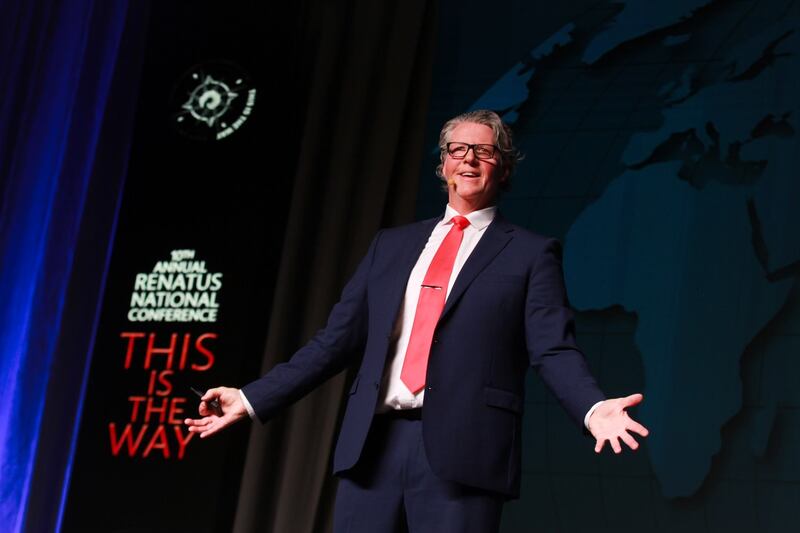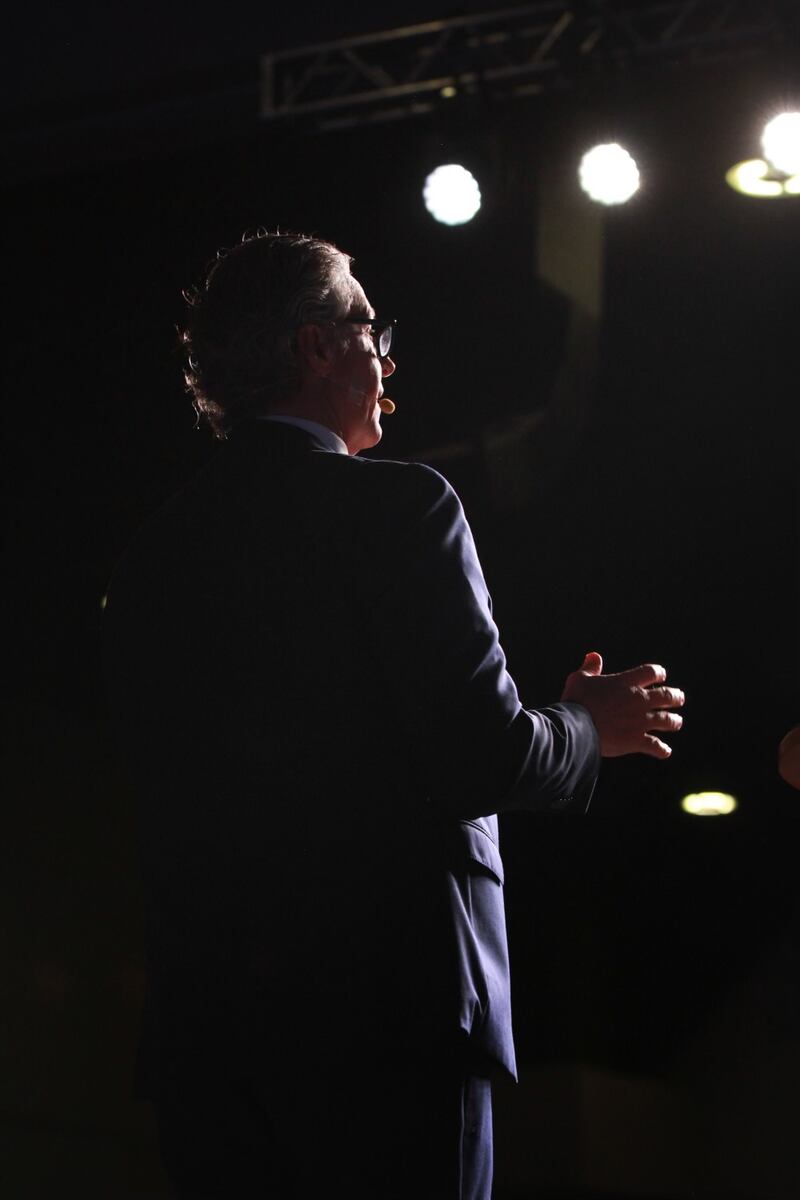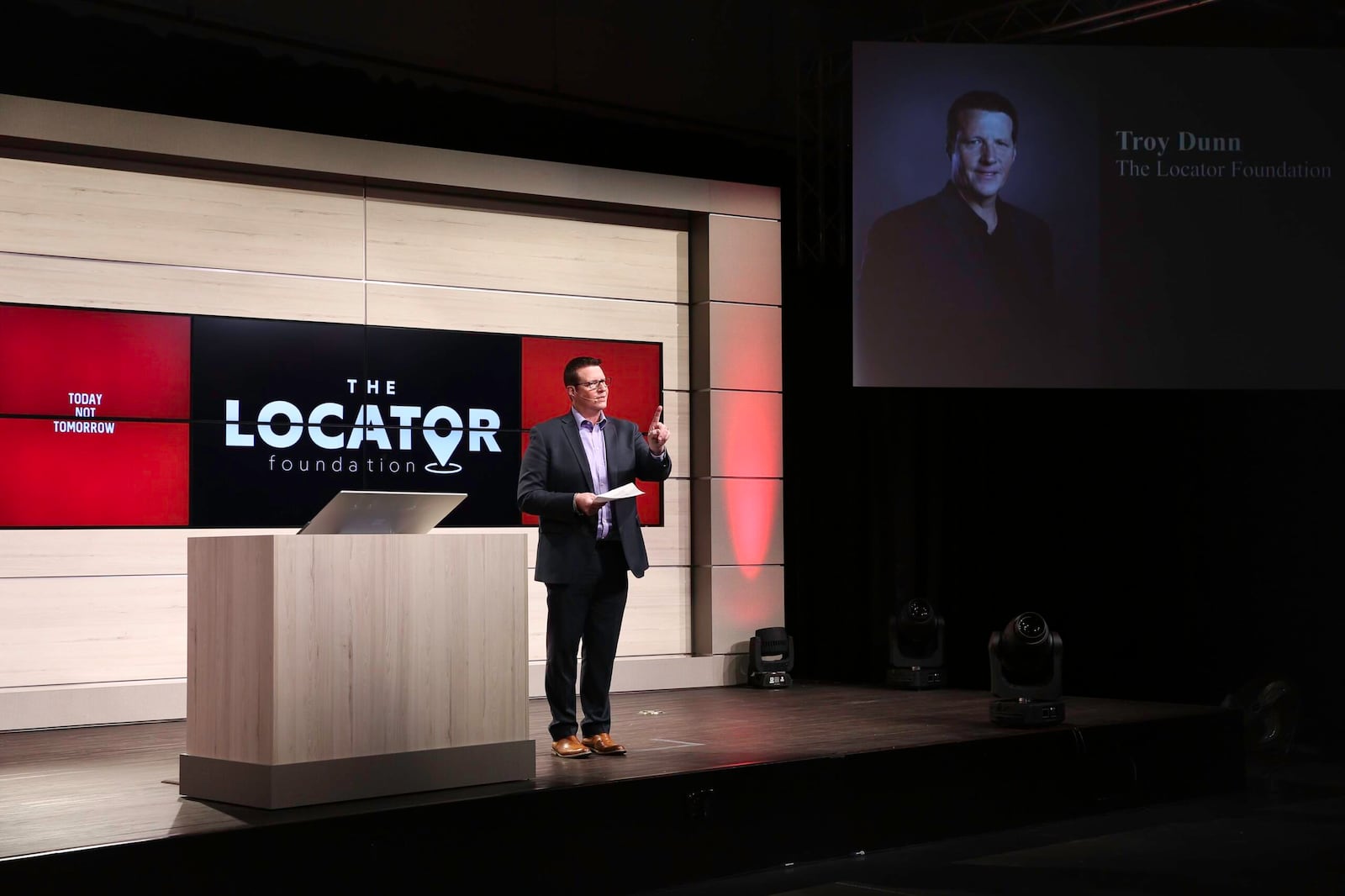I’ve heard that adults are built from parts of their childhood. I agree with this belief. For the purpose of focusing on my journey as a founder, I’ll skip the childhood trauma stuff and focus on two childhood experiences that ended up shaping the rest of my life—and eventually the lives of thousands.
First, my mom was adopted as an infant, so I grew up hearing her wonder aloud about who her biological family was, where they were and if they had ever looked for her. As I grew older, her questions became my questions. The idea of there being another entire family tree out there somewhere was weirdly fascinating to me.
Second, my dad grew up extremely poor. He got a college education but could never conform to the traditional career path type of life. He was an entrepreneur by birth. I specify “by birth” because I believe entrepreneurs fall into two categories: by birth and by choice.
Dad raised us kids as entrepreneurs, and we started our first small businesses painting addresses on curbs in Alaska as preteens. Once a kid tastes the power of being able to generate money at will, there is no going back to the “other way” of thinking.
My dad was a fun, creative, entrepreneurial-minded man. He taught us to dream big, but he never taught us to “land the plane and focus on details and execution.” He couldn’t teach us those critical elements of entrepreneurial success because he didn’t have those tools in his own arsenal. Growing up watching him chase dreams but never catch them caused me to think maybe the “other way” was the path for me.
I tried to conform to the traditional route of going to college, getting a degree and walking the traditional career path—I even got a football scholarship! But alas, one semester of formal education in and I was miserable.
At Christmas break, I quit college and got a job as a radio DJ. Within a couple of years, I married Jen, my high school sweetheart. We moved from Oklahoma to Florida (I blame that decision on a previous spring break with my parents), and within months, we were running our own little scooter rental business on Fort Myers Beach.

My big break, broke
That little business landed me on the cover of Entrepreneur magazine as one of their “40 Under 40.” I was 22 years old, but that little bit of notoriety triggered an invitation from a “national seminar company” to “build a career as a professional speaker.” Not sure how a scooter biz qualified me for such a career?
Within weeks, I realized I had joined a very unethical, unscrupulous company whose infomercials filled hotel ballrooms with unsuspecting people desperate to achieve their dreams. The spectacle was disgusting to witness, and I could not be a part of it. I told my officemate, another young entrepreneur who was recruited into the company, that I was quitting. He told me that if I quit, he would quit because I was his only friend there.
We chatted about what we would do for work after we quit. I said I would probably return to my scooter business. That’s when my friend said something that triggered those two “childhood impacts” mentioned above and set me on a course that would change my life. He said, “Well, I’m going to finish writing a book about how I’m adopted and I found my birth family.”
I had so much I suddenly needed to say to him. I said the one thing I was bursting at the seams to say: “Will you help me help my mom find her family?”
He mumbled something about not being a professional but that he would try. I dashed to my mom’s house, snuck a shoebox out from under her bed and raced it back to his house. In that old, tattered shoebox was a plethora of paper scraps, forms, various photocopies of official-looking documents and lists of hand-written phone numbers that had each been scratched out over time.
He slowly sifted through it, picking up one piece of paper, then another, writing stuff onto little yellow sticky notes. Five hours later, after several faxes and a couple of trips to the public library to stare at microfiche, old phone books and obituaries, it was done. He did it.
In five hours, this guy did what my mom had been unable to do in 20 years. He solved the greatest mystery of my mother’s life. He slowly slid a yellow sticky note across the table, letting it rest in front of me. I stared at it. Those 10 scribbled digits on that note were so surreal. I was shaking, and my breathing got shallow and quicker. I mumbled, “What do I do?” He laughed and said, “Call your mom and give her the good news!”
I dialed my mom on his kitchen phone, and after three rings, she answered. My heart was pounding. I said, “Mom, are you sitting down?” She said, “Oh Lord, Troy, what’s wrong?” I said, “Nothing, mama. I am holding a piece of paper with your mother’s phone number on it.”
She was so quiet for an awkwardly long period of time. No words. No reaction. Silence—almost as if she had hung up. I remained silent, and then she began to sob. I had never heard my mom cry, not even at her own father’s funeral. This cry was different. It was deep, from the depths of her soul. This phone call changed everything.
I turned to my friend who had just changed my mom’s life and blurted out, “My mom can’t be the only one! There have to be other families desperately searching for a loved one. Let’s start a business doing this!”
The beginning: more than we could have ever imagined
After setting up our “business” in the spare bedroom of his house, we printed homemade business cards on his old dot matrix printer and went to an adoption convention in Tampa, Florida, just a couple of hours from our “office” in Cape Coral.
After handing out our business cards for a day and a half, a woman named Lisa approached us and said, “I hear you two can find missing family members. Would you be willing to come on a national talk show and grant a wish for a family?” Our first response was one of hesitancy, as it seemed a bit exploitative to do something so very personal to us on television.
Sensing our hesitancy, she said something that would be my mantra for many years to come: “How do you expect to change the world if the world doesn’t know you exist?” That felt right, so we said yes.
Prior to the taping, the producer asked us for our toll-free number so they could put it on screen. We didn’t have a toll-free number, which seemed surprising to her. She said, “That’s weird. You should get one for the next time.” That sentence reverberated in my head for hours, specifically the last four words: “for the next time.”
Taped in New York City in 1991, the show was one of the early episodes of “The Montel Williams Show.” We reunited a family on the show, and it aired two weeks later.
I imagined being on national TV was a once-in-a-lifetime moment. Little did I know back then that one day, I would frequently teach many entrepreneurs how to generate endless amounts of media for their companies.
Since we didn’t have a toll-free phone number, the producer said she would post our “office number” on TV. The number we gave her was my partner’s home phone number. The only smart thing we did was forward that number to an answering service—remember those? Human beings answering real calls and writing down real messages? We did that.
A day after our episode aired, a representative of the answering service showed up at the “office.” He said, “In the past 24 hours, our service has taken over 12,000 messages for you!” He also said it may have been “substantially more,” but that was all their system could process. He was very unhappy and demanded we stop forwarding our phone immediately. He then handed us an $18,000 phone bill for one day of service.
We were shocked, horrified, ecstatic and about as giddy as a couple of kids on Christmas morning. I knew at that very moment that television was how we were going to market our services. We were going to change the world!
Rinse and repeat
In the years that followed, we did literally hundreds of TV appearances on all of the major TV networks, talk shows and morning shows many times, over and over. Week after week, year after year.
We grew a successful company (originally named International Locator, but evolved into BigHugs), hired a lot of people and solved cases across the U.S. and around the world. We really felt like we were doing God’s work.
The families reaching out by the hundreds every month were no longer just adoptees seeking birth families. They were veterans seeking military buddies, broken-hearted people seeking lost loves and families seeking abducted children from bad divorces decades ago. We came to believe two things about humankind: 1. Half the world is looking for the other half, and 2. You can’t find peace until you find all the pieces.
After 13 years and hundreds of TV appearances on “The Oprah Winfrey Show,” “Dr. Phil,” “Today,” “Good Morning America,” Fox News, CNN, CNBC, BBC, “48 Hours,” “Entertainment Tonight,” “Current Affair,” “Inside Edition,” “The View,” “The Sally Jessy Raphael Show,” “The Maury Show,” “Unsolved Mysteries” and thousands of families reunited, Paul Allen, the brilliant founder of Ancestry.com, came along and acquired our company in 2002. I agreed to stay on board for a while.
I spent the next three years as the EVP of media relations, using my proprietary media-generation system to get Ancestry on lots of TV shows. I loved every second of it.
Toward the end of my third year, our seven-year-old daughter was diagnosed with a rare form of cancer. Suddenly, the music of life stopped playing. It was a very difficult chapter for our family, especially for that beautiful little girl of ours. The journey through cancer is something Jen and I hold as a sacred experience, and we don’t speak of it casually. We made it, and our beautiful daughter is still with us, still fighting and thriving.
Pressing the resume button
In 2007, a phone call came in from WE tv, the largest television network for women. They shocked me when they offered me my own television show. After much consultation with Jen and others, I accepted the offer, and poof, just like that—I was back in the television game, but at a much higher level than I had ever been before.
Up to now, everything I had in my life had come from selling someone on an idea, a product, a business or just trying to sell myself. This was the first time something great came along where I didn’t have anything to do with it—no selling, persuasion or pitching. I leaned into it.
“The Locator with Troy Dunn” shattered the network’s rating records. We had the highest-rated show in network history and ran the show for five seasons. After selling BigHugs.com to Ancestry, I didn’t think I would ever feel the fulfillment of doing something “important” ever again, but this TV series was all that and more.
The success of “The Locator” opened many doors for me. I wrote “Young Bucks" and “Family: The GOOD Word,” which became bestsellers. I was doing more keynote speeches than I could keep up with. If that wasn’t enough, a much-larger television network—TNT—gave me a primetime show called “APB With Troy Dunn.” With a massive budget, it took the reunion work we were doing to an even higher level. I brought back every producer and crew member I could get back from my first show, so this one felt like a reward to the whole team that had made my TV shows into hits.

Our own studio
It’s crazy how one success can breathe life into the next success if you don’t screw with the formula. We reunited twins who didn’t know each other, countless celebrities with loved ones, and helped many people near the end of their life get that one last hug.
Yet another TV network came to us offering yet another primetime series, “Last Hope.” This one came with an added bonus—our production company could produce the show! Rather than simply being the “star” of the show or the executive producer, we were now the production company. But there was one small problem—I didn’t have a TV production company. My lawyer/agent gave me three days to “fix that,” and boom, DunnDeal Studios was born.
This creative control was so invigorating and fulfilling. I worked with my amazing team, led by my former producer-turned-business-partner in production, Tiffany, who has been with me since day one of show one. We produced an amazing series and have assisted others in doing the same.
The next chapter
About a year prior to the pandemic, I was having lunch with a dear friend from a company called MyMedic. He asked if I still had a business that helped people in search.
I explained that it had been acquired years earlier and that not having a solution for people was a growing concern of mine. All of my TV shows were still running in various parts of the world and are now on digital platforms like Amazon Prime. Every episode drives some viewers to search for their own long-lost loved ones. They do their best to track down my personal email, phone number and even address. They write heart-breaking emails and letters that all start with some version of “You are my last hope.” It is crushing.
Right then and there, this good man told me his company would give us a 501(c)(3) nonprofit charity. I was speechless. I graciously accepted and started learning all I could about establishing a nonprofit.
Within a few weeks, The Locator Foundation opened its digital doors. We have been flooded with over 3,000 families desperately seeking to have a reunion wish granted. We were immediately overwhelmed, and I now realize my #1 responsibility is going to be fundraising for the foreseeable future. Now, I’m hoping that my Utah community—which generally celebrates the institution of family—will join me in this effort to grant as many of these wishes as possible.
Reflecting on my life and the older I get, the more I embrace the brokenness of each of us. To the broken people who still dare to dream despite their own shortcomings, I say this: I experienced childhood trauma that followed me into adulthood. It impacted my mental health, my self-esteem and my judgment. I had a chapter in my life where I struggled, made poor choices, and profoundly hurt myself and the people I love most.
It wasn’t a situation of “falling off the horse and getting back on.” It was more like shooting the horse, realizing that was a really stupid thing to do, and then choosing to either lay down with the horse and quit or choose to walk back to town, carrying the horse! I chose the latter.
The walk back was long and hard, but I made it back to town. The horse survived, and I am profoundly grateful. Your turn. Get up, and start walking back to town. Life is there, waiting for your arrival. You’ve got this.

